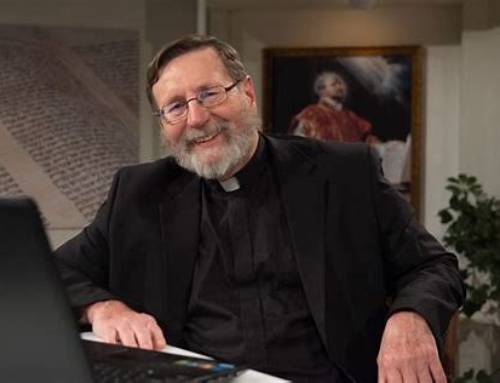I was brought up in Evangelical Protestantism which has always been strong on individualistic religious experience, and often that experience was highly emotional, and whenever the emotions are involved, manipulation of some sort is always around the corner.
We’ve all experienced the emotional blackmail imposed within families: “All I’ve done for you and this is the thanks I get??!!” or “How can you do this to me when you’re supposed to love me??!!” or “Go ahead and make that choice, but realize there are consequences-I will never speak to you again.”
Sentimentalism in religion often leads to emotional blackmail or at least emotional manipulation in religion. So the fundamentalist preachers used to lay on a combination of horror story–telling the congregation of the person who died unprepared or who was not ready for “the rapture”–and a heavy dose of guilt. These two were pretty effective in getting a soul to “turn to Christ.”
From what I hear from many Catholics, the Protestant preachers did not hold a monopoly on this sort of religious emotional blackmail. Catholic priests too would lay on the guilt and warn of dying unprepared because the jaws of hell were open ready to devour the guilty soul.
The emotional pressure also existed within religious organizations. “How could you plan to leave the monastery when God has called you here??!!” “You’re leaving our parish are you? After all we’ve done for you?”
Underlying this emotional pressure is sentimentalism in religion. The person–whether they are a religious superior, a preacher, principle or parent–are governed by their own emotions and use the power of emotions to sway the person they are manipulating.
This immersion in emotion is typical in other aspects of religious life–in which the sentimentalist assumes their own powerful emotions or experiences in religion are not only normative, but should be a standard for “Correct” religious experience or expression.
An example is the charismatic Christian who speaks in tongues, has been “slain in the Spirit” and extends their own experience–expecting that everyone else should (and even must) have the same experience to be bona fide.
Lest we think this sort of thing is the sole preserve of emotional charismatic types, I have discerned the same underlying mentality among traditional Catholics who have had wonderful religious experiences within traditional worship. “I felt such reverence when Father celebrated Mass ad orientem!” or “When I can’t hear the canon of the Mass the reverence is so much greater!”
I have no doubt those in question have indeed had a profound religious experience, but it would be quite wrong to extrapolate religious mandates from one’s own subjective experience.
The great thing about Catholicism is that it is objective. We can rely on the validity of the sacraments of our salvation whether we feel good about it or not.
While warning of sentimentalism I hope readers do not draw the conclusion that I am in favor of a stark, cold hearted, legalistic religion of only rules, regulations and rubrics.
I am all in favor of passion in religion, but not a religion that is ruled by our passions.






Leave A Comment
You must be logged in to post a comment.